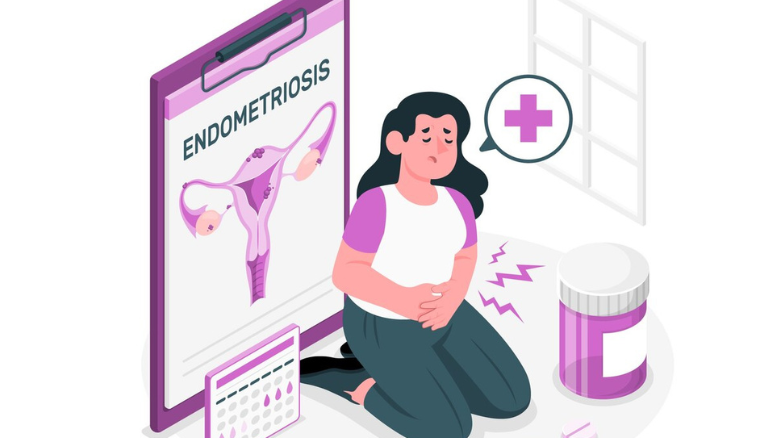
Imagine waking up with a dull ache in your abdomen, an unwelcome companion that seems to shadow you through the day. This pain, often dismissed as just another cramp, might be whispering a secret about your health that you shouldn't ignore. Endometriosis, a condition affecting millions of women worldwide, often comes cloaked in subtle signs that can easily blend into the background noise of everyday life. But what if these signs are more than just everyday annoyances? Recognising them early can make a world of difference in managing and understanding what your body is trying to tell you.
Could that lingering pain be a sign of something more serious? Are you overlooking the whispers of endometriosis in your daily life?
Key Takeaways:
- Recognise the early signs: Ignoring them could lead to complications
- Pain isn't normal: Learn why period pain might be a red flag
- Look beyond the symptoms: Understand the impact on your fertility and overall well-being
- Seek professional advice: When and why to consult a doctor
- Empower yourself with knowledge: Personal stories and expert insights can guide you
Early Signs of Endometriosis You Shouldn’t Ignore:
When it comes to endometriosis, understanding the early signs is akin to listening to a language your body speaks fluently but you rarely understand. This silent condition often begins its tale with whispers of pain, fatigue, and discomfort that are easy to brush aside. Yet, these signs are crucial, not only for diagnosis but for easing the journey ahead. Early detection can spell the difference between years of struggle and a life reclaimed.
1.Persistent Pelvic Pain:
Pelvic pain can be the first hint that endometriosis might be at play. Unlike typical menstrual cramps, this pain persists and sometimes even escalates outside your period. It's like a shadow that follows you, dull and relentless, often intensifying during specific times like menstruation or intercourse. You might find yourself clutching a hot water bottle or reaching for painkillers more often than not. This isn't a battle you have to face alone; it's a signal to seek medical insights.
2.Heavy Menstrual Bleeding:
If your periods have grown increasingly heavy, it's time to pay attention. Endometriosis can cause your menstrual flow to become more intense, sometimes even leading to anaemia due to the excessive blood loss. You might notice you're changing pads or tampons more frequently or that your periods last longer than usual. This isn't just an inconvenience; it's your body waving a red flag that deserves attention.
3.Fatigue and Exhaustion:
Do you find yourself feeling unusually tired, even after a full night's sleep? Fatigue is a common companion for those with endometriosis. It's as if your energy is being sapped away without your permission. This exhaustion can impact your daily life, making even simple tasks feel like monumental efforts. It's important to acknowledge this weariness as a potential symptom rather than just chalking it up to a busy lifestyle.
4.Pain During Intercourse:
Experiencing pain during or after intercourse isn't something you should accept as the norm. For many women with endometriosis, this pain can be sharp and abrupt, casting a shadow over intimacy. It's not just a physical discomfort but can also take an emotional toll, affecting relationships and self-esteem. This is an area where candid conversations with your partner and healthcare provider become essential.
5.Infertility Issues:
Struggling to conceive might be one of the more heart-wrenching signs of endometriosis. The condition can impact fertility, making it more challenging to become pregnant. If you've been trying to conceive without success, it's worth considering the possibility of endometriosis. Consulting a fertility specialist can help you explore your options and understand the underlying causes better.
6.Digestive Problems:
Endometriosis can sometimes masquerade as digestive issues, leading to symptoms like bloating, constipation, or diarrhoea. These symptoms often worsen during menstruation, adding another layer of discomfort to an already challenging time. If your digestive woes seem to coincide with your menstrual cycle, it's worth exploring whether endometriosis could be the culprit.
7.Back and Leg Pain:
Back and leg pain, particularly during your period, can be another sign of endometriosis. The pain often radiates from the pelvis, making its presence felt in the lower back or down the legs. It can be misleading, often attributed to other causes like muscle strain. However, if this pain seems pegged to your menstrual cycle, it's worth a closer look.
8.Emotional and Mental Health Impact:
The physical symptoms of endometriosis are often accompanied by emotional and mental health challenges. Chronic pain and fatigue can lead to feelings of frustration, anxiety, and depression. It's important to recognise that these emotional responses are valid and warrant attention. Seeking support from mental health professionals or support groups can be incredibly beneficial.
Conclusion:
Endometriosis is a complex condition that often speaks in whispers. By tuning into your body's signals and recognising these early signs, you can take proactive steps towards managing your health. Don't let these symptoms steal your peace of mind or quality of life. Seek professional guidance, share your story, and empower yourself with knowledge.
Learn the early signs of endometriosis with Harsha Hospitals. Our specialists help identify symptoms like pelvic pain, heavy periods, and fatigue early, enabling timely diagnosis and effective treatment to improve women’s reproductive health.


